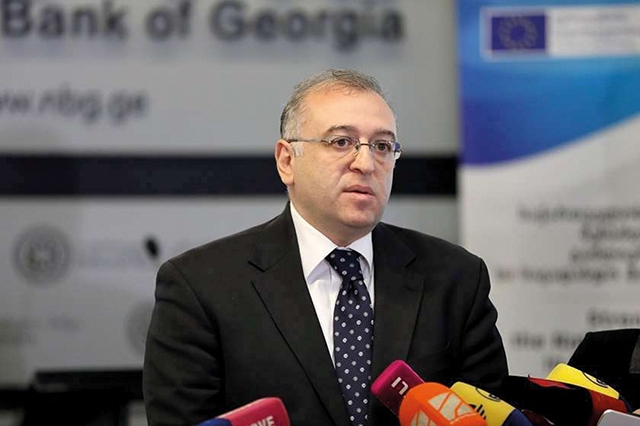Why the Georgian Monetary Policy Was Tightened
The President of the National Bank of Georgia (NBG), Koba Gvenetadze, who arrived in Parliament on December 13 to attend the approval of the document on monetary and credit policy, explained why the monetary policy was being tightened.
On December 11, the NBG tightened its monetary policy by 0.5%, from 8.5 to 9% which is the highest refinancing rate since 2008.
Gvenetadze said that in response to rising inflation of up to 7%, the NBG decided the rate on refinancing loans had to be raised. He explained that refinancing loans is a key operating tool of the monetary policy, by which the National Bank delivers the amount of money the system needs at any given point in time. He noted the supply of liquidity means its total supply, not just refinancing loans. In addition to refinancing loans, Gvenetadze said that liquidity in the system can be reduced or increased by other channels, such as government operations, foreign exchange operations, open market operations, and more. The NBG balances liquidity fluctuations caused from other sources through the refinancing rate.
“The National Bank delivers liquidity and money on demand at a given interest rate. To sum up, the NBG, like other central banks, is supplying money on a cost-based rather than quantitative basis, i.e. by changing interest rates. The operational framework used by the National Bank in conducting monetary policy is in full compliance with the best practices of leading central banks of small open economies,” he said.
The head of the NBG also noted that since March this year, annual inflation has been above 3%, and in November it stood at 7.0%.
Gvenetadze noted that inflation was affected by single factors at the beginning of the year: excise taxes on tobacco products increased significantly, as well as rising food prices, which are less dependent on the National Bank's monetary policy.
“Central banks do not usually respond to such factors, as they are almost impossible to neutralize with monetary instruments. Inflation has accelerated since September, largely due to the depreciation of the GEL nominal effective exchange rate and the long-term maintenance of the impaired benchmark,” he added.
He then highlighted that Russia's July decision to halt flights with Georgia and the spread of other formal and informal trade sanctions raised expectations of an exchange rate devaluation. According to him, even before the actual decline in foreign exchange inflows, foreign exchange supply declined in the market, and demand increased, leading to a more rapid depreciation of the exchange rate than expected.
“We estimate that the country received $300 million less in tourism revenue due to airline transactions. This was followed by the political tensions, which contributed to the further devaluation of the national currency.”
The Head of the National Bank explained that as the depreciation rate shifted to inflationary expectations and inflation increased, the NBG began tightening the monetary policy and increasing the refinancing rate gradually, by 2.5 percentage points to 9.0%.
“Such an increase will reduce overall spending in the country, which will eventually slow the pace of rising consumer prices. At the same time, the increase in interest rates makes national currency savings more attractive and encourages investors to use GEL securities, thereby helping to increase demand and strengthening the GEL. In addition, the National Bank also used other tools at its disposal, namely interventions and reducing foreign exchange reserve requirements. However, the most effective leverage is the monetary policy rate,” he stated.
By Tea Mariamidze
Image source: Imedinews.ge












